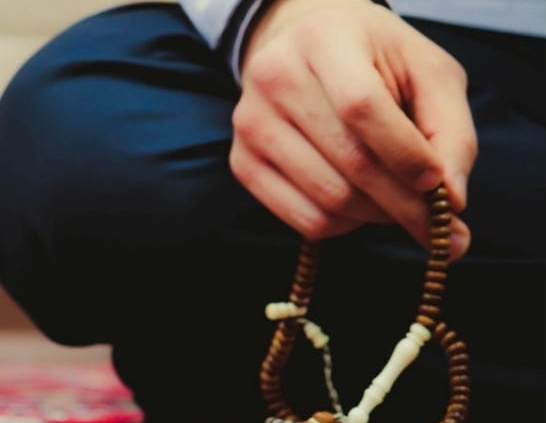Is Group Dhikr With Swaying Permissible?
Hanafi Fiqh
Answered by Faraz Rabbani
Question: Is group dhikr with poetry and rhythmic swaying permitted? What about the narration of Ibn Mas`ud prohibiting it?
Answer: In the Name of Allah, Most Merciful & Compassionate
Yes, such form of dhikr is in itself permitted, as the verdicts of major Hanafi authorities make clear.
Among the great scholars of the Hanafi school who have specifically permitted such an act are Shaykh al-Islam Ibn Kamal Basha, Imam Shurunbulali, Sayyidi Abd al-Ghani al-Nablusi, `Allama Abd al-Qadir `Isa—who cites proofs for it from the major Hanafi reference works, including Ibn Abidin—and Imam Ashraf Ali al-Tahanawi in his Imdad al-Fatawa (5.151).
As for the narration of Ibn Mas`ud prohibiting group dhikr, it was discussed by Imam `Abd al-Hayy al-Lakhnawi in his book on the permissibility of loud group dhikr, Sibahat al-Fikr fi’l Jahri bi’l Dhikr, who stated:
“This may be answered in several ways:
First, while this narration was mention by a group of fuqaha, it does not have any trace in the books of hadith. Rather, what is authentically established from Ibn Mas`ud (Allah be pleased with him) is the contrary. Imam al-Suyuti (Allah have mercy on him) said in Natijat al-Fikr [his work on the permissibility of group dhikr out loud], This narration from Ibn Mas`ud (Allah be pleased with him) needs exposition in terms of its chain of narrations and who of the hadith masters transmitted it in their works, and I have seen evidence that would disprove its being established from Ibn Mas`ud. Ahmad ibn Hanbal transmitted in his Kitab al-Zuhd, that Husain ibn Muhammad related with his chain from Abu Wa il that he said, Those who think that Abdullah [Ibn Mas`ud] used to prohibit the dhikr! I never sat with Abdullah [Ibn Mas`ud] in a gathering save that he did dhikr in it.
Second, even if this narration were established, it goes against explicit rigorously authenticated Prophetic hadiths that permit dhikr out loud as long as it is not excessively loud.[3] These hadiths are given precedence [over this narration] when their indication conflicts.
Third, what al-Bazzazi mentioned in his Fatawa.” [Sibahat al-Fikr, 42-43]
In his Fatawa, al-Bazzazi stated:
“If he [Ibn Mas`ud] actually removed them from the masjid, it is possible that it was because they believed that it was an act of worship [specifically enjoined], and to teach people that such a belief is a blameworthy innovation.”
There are also a number of hadith that permit group dhikr, such as the narration of Abu Huraryah in Bukhari, Muslim, Tirmidhi, Nasa`i, and Ibn Majah, wherein the Prophet (Allah bless him and give him peace) said:
“Allah says, ‘I am as My servant thinks of Me, and I am with him when he makes remembrance (dhikr) of Me. If he makes remembrance of Me to himself, I make remembrance of him to Myself. If he makes remembrance of Me in a gathering, I make remembrance of him in a gathering better than it.'”
Imam al-Jazari (Allah have mercy on him) said in his Miftah al-Hisn al-Hasin, “This hadiths indicates the permissibility of group dhikr.” Imam al-Suyuti said, “Group dhikr can only be out loud, so this hadith indicates its permissibility.” After this hadith, Imam Lakhnawi quotes thirty nine other hadiths of the Prophet (Allah bless him and give him peace) that indicate the permissibility of group dhikr. (Sibahat al-Fikr 44-58) He then quoted numerous Hanafi authorities, including al-Bazzazi, Abd al-Haqq al-Dahlawi, Khayr al-Din al-Ramli, and others, who said group dhikr is permitted. [This is also the position adopted by al-Tahtawi and Ibn Abidin, the two foremost references for fatwa in the Hanafi school, and there is no consequential disagreement about the permissibility of group dhikr in the Shafi`i school; it is the recorded position of al-Nawawi, Ibn Hajar, al-Subki, Ibn Daqiq, Ibn Abd al-Salam, al-Khalili, and their other imams].
Imam Lakhnawi concludes by stating:
“As for loud dhikr, the hadiths permitting it are numerous, as are the reports [from the Companions and early Muslims], and we did not find a single proof clearly indicating that loud dhikr is impermissible or disliked. The hadith experts, Shafi`i fuqaha and some Hanafi fuqaha also permitted it.”
In the end, it should be noted that when it comes to the legal ruling of a particular human act, it is our duty to see what the legal experts of Islam, namely the fuqaha of the four schools of thought, said about the matter. Any matter that they deemed permitted may not be criticized by the common person or deemed wrong, for they are the inheritors of the Prophet (Allah bless him and give him peace), and they fulfilled the duty of operationalizing the sunnah of the Beloved of Allah.
Wasalam
Faraz Rabbani
(Edited by Salman Younas)
